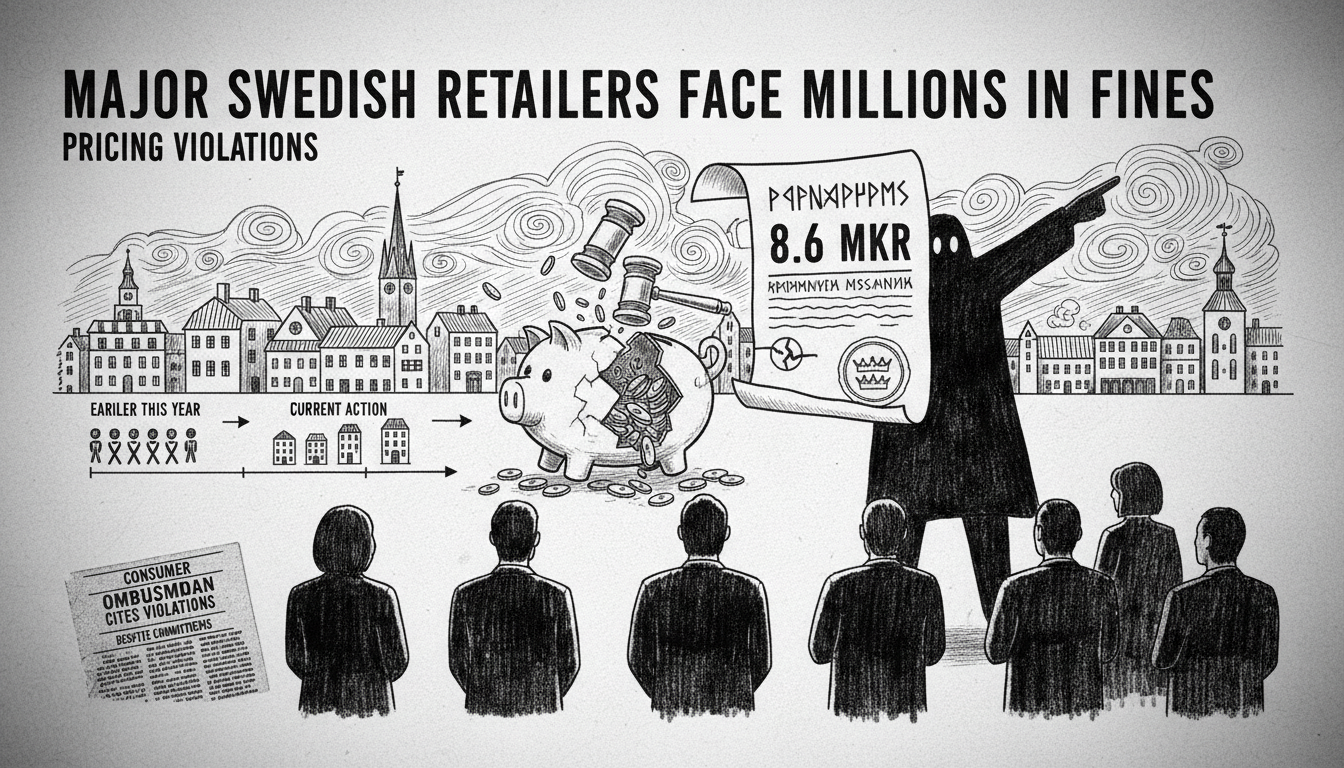Seven prominent Swedish companies risk paying substantial fines for incorrect discount practices. The Consumer Ombudsman has issued penalty notices totaling 8.6 million Swedish kronor. H&M, Desenio, Bokus, Home Furnishing Nordic, Inet, Kjell och Company and Tretti all face financial penalties.
These retailers allegedly violated Sweden's strict pricing regulations. Companies must clearly display the lowest price from the previous 30 days when advertising discounts. Percentage or kronor reductions must calculate from this baseline price. Authorities claim these seven businesses failed to follow these rules despite previous commitments.
Sweden maintains rigorous consumer protection standards. The country's pricing regulations aim to prevent misleading marketing tactics. Consumers deserve transparent information when making purchasing decisions. These rules ensure shoppers understand the true value of advertised discounts.
This enforcement action follows similar measures earlier this year. Ten other retailers faced scrutiny for comparable violations. That list included Blomsterlandet, Bygghemma, Nakd, Nordic Nest, Power, Soffadirekt, Stadium, Webhallen, XXL and Åhléns. The pattern suggests systematic issues within Swedish retail pricing practices.
What consequences await these companies? They must immediately correct their pricing methods. Future violations could trigger additional financial penalties. The Consumer Ombudsman monitors compliance closely. Businesses that ignore these warnings risk further legal action.
Why does this matter for international readers? Sweden often sets trends in consumer protection that other Nordic countries follow. These cases demonstrate how seriously Scandinavian authorities treat pricing transparency. The substantial fines show regulators will enforce rules against even major corporations.
For expats and international shoppers in Sweden, this enforcement provides reassurance. The system actively works to prevent deceptive pricing strategies. Consumers can trust that advertised discounts reflect genuine savings. The regulatory environment prioritizes customer protection over corporate convenience.
What should consumers watch for when shopping? Look for clear references to previous lowest prices. Be skeptical of discounts without proper context. Report suspicious pricing to consumer protection authorities. These measures help maintain fair market conditions for everyone.
The current situation reveals ongoing challenges in retail compliance. Even established companies struggle with pricing regulations. This case serves as a warning to all retailers operating in Sweden. Proper pricing practices aren't optional—they're legally mandatory.

